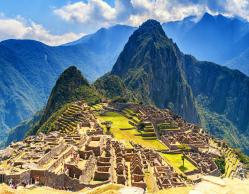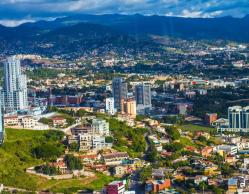Tropical ecosystems contain the highest concentration of Earth’s biodiversity. Under the pressures of human population growth and resource use, tropical ecosystems are also experiencing the highest rates of biodiversity loss. How can successful conservation work occur such that the well-being of local people is not compromised but rather promoted? And how can human- centered development work be done in a way that does not degrade the natural ecosystem to which humans belong?
These are the fundamental questions we engage as we survey a variety of tropical habitats in Belize - including coral reefs, mangrove swamps, rivers and streams, tropical rain forests, lowland savannahs, and mountain pinelands. Daily field trips will combine plant and animal identification, investigation of ecosystem processes, evaluation of human impact, and cultural exchange.
Course evaluation will be based on a daily journal, active participation in course activities and evening discussions, a presentation, and one written qualitative test. To prepare for the course, students will be required to attend three meetings during the fall 2024 semester.
Academics
2 credits
Core fulfillment:
- Global Regions & Culture
- Environmental Sustainability









